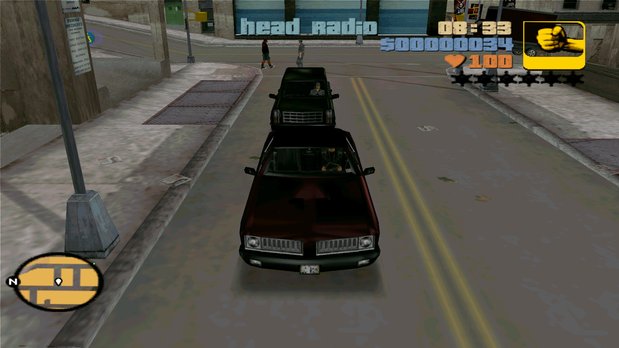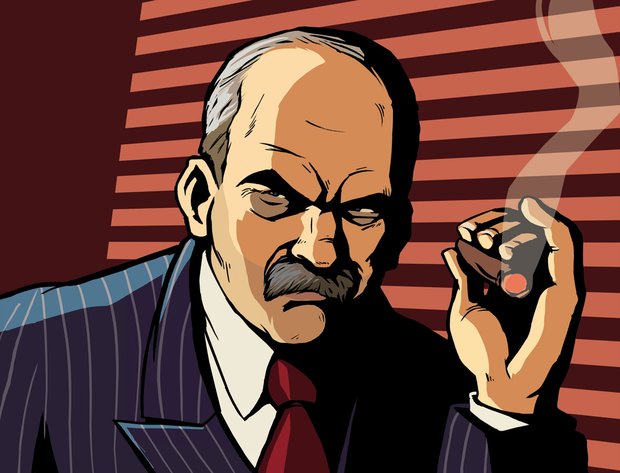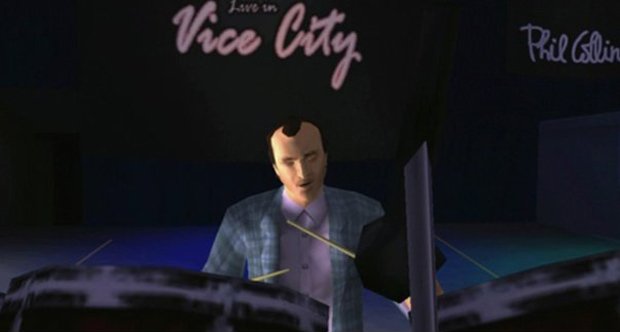The Top 7 Ways Grand Theft Auto III changed the face of gaming
5. It hammered home the importance of a good soundtrack
No, this isn’t just about licensed music. After all, other games had already forked over cash for the occasional chart-topper, and Grand Theft Auto III’s most recognizable tracks were ripped from Scarface’s soundtrack of ‘80s hyper-cheese. It’s not so much that GTA’s track list was stellar (although it certainly has been ever since), it’s the way the music was incorporated into the game.

Above: Also the fact that it was sometimes fun to just sit in your car and listen to it
Somewhere between the fall of chiptunes and the rise of clichéd synthetic scores cribbing from Hollywood pap, Rockstar took a different approach and the interactive world became better for it. For starters, nearly all the music played “diegetically.” Pardon the $10 word, but that’s when the music you hear emanates from an onscreen source. In GTA III, almost no music plays without the presence of an in-game radio – no car, no tunes. It’s a small stylistic choice, but when combined with static, ads and DJ chatter, it certainly enhanced what was already hell-bent on being the most realistically immersive, interactive experience the world had ever seen. Think of other atmospheric moments that used iconic songs – your arrival in Rapture. Your abduction in Prey. Now go ahead and tip your hats to GTA.
Music that plays over a movie or game scene is typically meant to yank a specific emotional reaction out of you. GTA, however, took a more authentic approach and let you define your own mood simply by offering a seemingly absurd variety of ear-food. Also, Lazlow’s fake commercials and talk-radio channels are among the funniest things ever written for games.
GTA’s track lists and radio stations swelled to such enormous proportions that it eventually became difficult to catch the same song/bit more than once, which is more than impressive for a game that you can play for over 80 hours. Also, Rockstar was so committed to allowing players to define their own experience that GTA III was among the first games to let you pipe your own music into a custom station (on pretty much every platform except the PS2, anyway), and has stuck by the feature (whenever possible) ever since. Yes, even in the iPhone game.
4. It made celebrity appearances in games a big deal
Grand Theft Auto III wasn’t the first videogame to enlist the help of celebrities to fill in its voice cast; it wasn’t common, but sometimes actors would reprise movie roles in game adaptations, or lend their voices to the occasional character here and there. It wasn’t seen as prestigious, because, well, game developers didn’t treat it as anything special. GTA III changed that, turning the credits of a videogame into something to be proud of. While the main character was completely mute, the secondary characters were played by well-known actors like Frank Vincent, Joe Pantoliano, Michael Madsen and Michael Rapaport.

Above: Frank Vincent's turn as mob boss Salvatore Leone was so memorable, in fact, that he reprised the role twice
Weekly digests, tales from the communities you love, and more
They weren’t exactly A-listers, of course, but that’s part of what made it so special: Rockstar didn’t grab Bruce Willis and shove him into the starring role, they chose character actors from popular films and cast them in roles that they would have been cast in had Grand Theft Auto III had been a movie. They were the first developers to treat their script like an actual script, getting the right actors for the parts instead of just haphazardly tossing in recognizable faces whose names would look good in a press release.

Above: Although there may have been one or two notable exceptions to that rule down the road
Rockstar raised the bar for videogame voice acting by not only including well-known actors, but by teasing competent performances out of them, increasing videogames’ overall quality and cultural cachet in the process.
3. Mods, Mods, Mods!
Does the world need a custom skin that makes Claude look like Deadpool? No, but that doesn’t make user-created content any less awesome. It wasn’t just the game itself that made Grand Theft Auto III so important; it was also what players added to the GTA III world once the game arrived on PC that forever raised the bar for the sandbox genre, casting a shadow over every open-world game that followed. Thanks to player-made content, the PC version of GTA 3 made Liberty City the kind of place where anything could happen. It didn’t just change the face of gaming, it made that face look like the Batmobile, gave it a light saber, and sent it to a McDonalds restaurant with a bazooka and an AK47.
The culture of community-crafted content continued to flourish with the release of Vice City, San Andreas and GTA IV with promising projects, like the Terminator 2 mod for GTA:SA and the Back to the Future: Hill Valley mod for GTA:VC. And while modding was itself nothing new, the mods that players banged together for GTA III were such desirable game-changers that they helped turn modding (or, at least, downloading mods) into a mainstream thing.
GamesRadar+ was first founded in 1999, and since then has been dedicated to delivering video game-related news, reviews, previews, features, and more. Since late 2014, the website has been the online home of Total Film, SFX, Edge, and PLAY magazines, with comics site Newsarama joining the fold in 2020. Our aim as the global GamesRadar Staff team is to take you closer to the games, movies, TV shows, and comics that you love. We want to upgrade your downtime, and help you make the most of your time, money, and skills. We always aim to entertain, inform, and inspire through our mix of content - which includes news, reviews, features, tips, buying guides, and videos.


